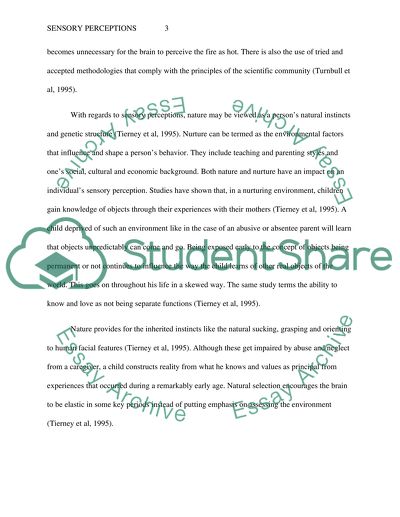Sensory Perceptions Essay Example | Topics and Well Written Essays - 500 words - 15. Retrieved from https://studentshare.org/miscellaneous/1605693-sensory-perceptions
Sensory Perceptions Essay Example | Topics and Well Written Essays - 500 Words - 15. https://studentshare.org/miscellaneous/1605693-sensory-perceptions.


